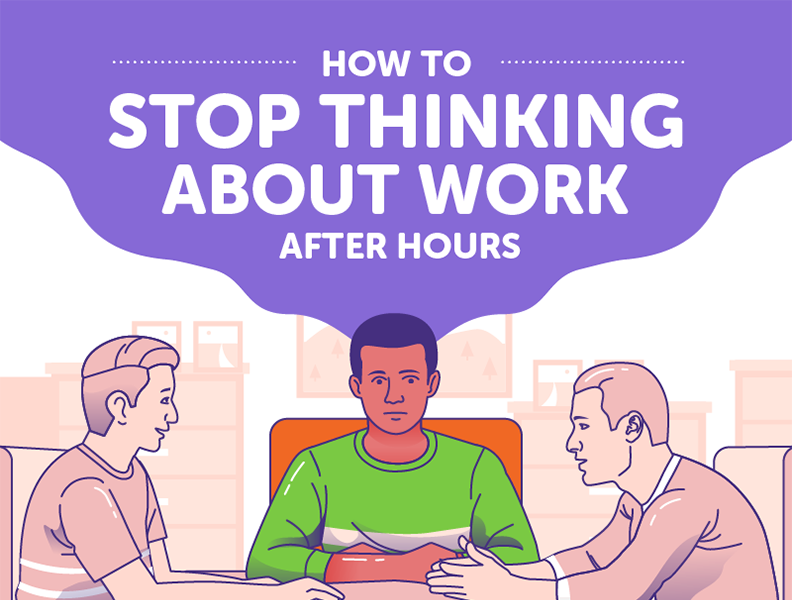Your feet may carry you home from work each evening, but what time does your mind truly clock off? If your inner voice keeps on working into the night, you’re putting your health, relationships, and productivity in peril.
Working hours have become a blurry concept these days. Whether you’re still checking your emails on the bus home or worrying about work problems when you should be preparing your evening meal, it feels like the 21st-century office has been relocated to your mind.
But too much work can kill you. The Japanese call this karōshi, or “death from overwork”. Your cardiovascular system, moods, energy levels, and how much sleep you get are all interconnected. When you lay awake at night thinking about work, you’re putting your whole system under increased strain.
There is a better way: learn to switch your work-mind off at the end of the day with tried-and-tested life hacks.
For example, you can try working towards ‘closure’ for your day by literally closing everything down. Set up an out-of-office reply for your downtime. Close all the tabs on your internet browser before you shutdown your computer and put your work phone in a drawer if you’re not obliged to carry it.
And then reboot your mind by spending the last few minutes of the day thinking through your achievements and struggles. Make a list of what you’ve done, and what you need to do tomorrow. And start your leisure time on the journey home by listening to music or reading some fiction.
We want to help you make the most of your free time, so we’ve created this new visual guide on how to stop thinking about work after hours. It might take some practice, but you’ll feel the benefits in all areas of your life.
It’s time to take back your evenings off for the benefit your family, your boss, and your own peaceful well-being.

Sources
- Construction Industry Cost Effectiveness Task Force. (1980). Scheduled Overtime Effect on Construction Projects. books.google.com
- Markman, Art. (2017). How to Forget About Work When You’re Not Working. hbr.org
- Patal, A., Schieble, T., et al. (2006). Distraction with a hand-held video game reduces pediatric preoperative anxiety. ncbi.nih.gov
- Web MD. (2018). Progressive Muscle Relaxation for Stress and Insomnia. webmd.com
- Harvard Health Publishing. (2018). Mini-relaxation exercises: A quick fix in stressful moments. health.harvard.edu
- eNetMD.(2018). Using Distraction to Treat Anxiety. enetmd.com
- Stanford Med. (2018). Section III: Special Skills, Chapter 6: Over-Thinking. med.stanford.edu
- Neff, L., Karney, B.R. (2009). Stress and Reactivity to Daily Relationship Experiences: How Stress Hinders Adaptive Processes in Marriage. researchgate.net
- UC Davis Health System. (2012). Asap & WorkLife Balance. studylib.net
- Kahneman, D., & Tversky, A. (1999). Evaluation by moments: Past and future. researchgate.net
- Cowan, K. (2017). How to Completely switch off from work and relax. creativeboom.com
- The Muse. (2018). 3 Realistic Ways to Unplug When You Leave the Office. themuse.com
- Larssen, A. (2018). 3 Ways to Stop Thinking About Work When You’re Not There. themuse.com
- Vanderkam, L. (2013). Your Weekend Has 60 Hours–Here’s How To Wring The Most Out Of Them. fastcompany.com
- Sturgis, I. (2015). How to find your brain’s off switch. telegraph.co.uk
Embed This Image On Your Site (copy code below):




